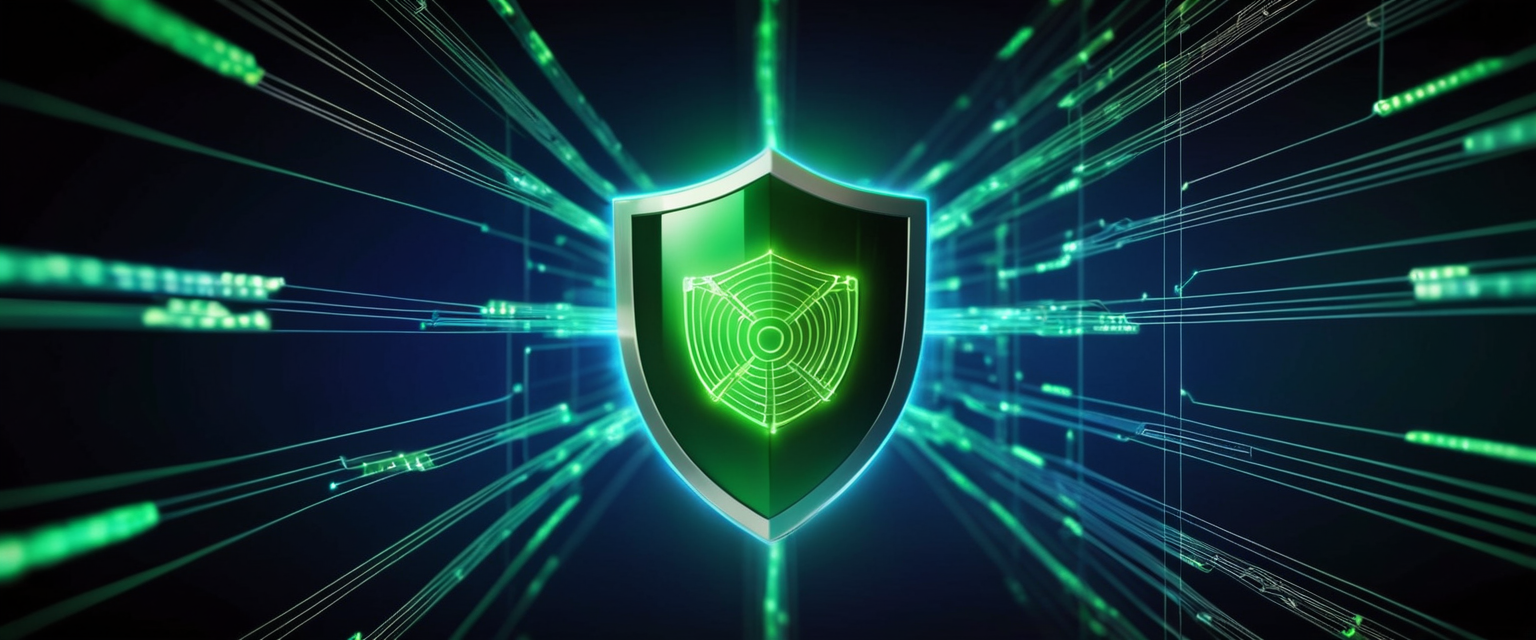
Proton VPN presents itself as one of the most privacy-focused virtual private network services available today, claiming to provide users with military-grade encryption, a strict no-logs policy, and transparent operations overseen by a nonprofit foundation. Through independent third-party audits conducted consecutively since 2022, the service has demonstrated compliance with its no-logs commitments, and its open-source architecture allows security researchers worldwide to examine its code directly. However, despite these impressive credentials, the question of whether Proton VPN is genuinely safe requires a nuanced examination that considers its demonstrated strengths alongside emerging security concerns and the inherent limitations of what any VPN service can realistically protect against. This comprehensive analysis evaluates Proton VPN’s safety profile across multiple dimensions, from its encryption standards and privacy policies to recent vulnerabilities and practical considerations for users seeking comprehensive online protection.
Organizational Structure and Company Legitimacy
Founding and Nonprofit Ownership
Proton VPN represents a unique organizational model within the competitive VPN marketplace, having been founded in 2014 by a team of scientists who met at CERN, the European Organization for Nuclear Research. Following a successful crowdfunding campaign that raised over $500,000 from more than 10,000 individual donors, Proton VPN launched on May 22, 2017 as an extension of Proton Mail, which had already established itself as the world’s largest encrypted email service trusted by over 100 million users worldwide. What distinguishes Proton from many competitors is its governance structure: since June 2024, the controlling shareholder of Proton AG has been the Proton Foundation, a nonprofit organization based in Geneva, Switzerland, whose mission is to advance privacy, freedom, and democracy around the world. This nonprofit majority ownership structure creates an organizational incentive structure fundamentally different from traditional venture-capital-backed VPN providers, as the company has no external investors pressuring it to monetize user data or compromise privacy principles for financial gain.
The board of trustees for the Proton Foundation includes notable figures such as Andy Yen (Founder and CEO), Antonio Gambardella, Carissa Véliz, Tim Berners-Lee (the inventor of the World Wide Web), and Dingchao Lu, bringing substantial credibility and oversight to the organization’s operations. This governance model is particularly significant because it removes potential conflicts of interest that plague many VPN providers. Rather than relying on advertising or data monetization to sustain operations, Proton VPN is funded exclusively through revenue from paid subscriber plans, ensuring that the company’s financial incentives align directly with user privacy protection rather than user data extraction.
Swiss Jurisdiction and Legal Framework
Proton VPN’s location in Switzerland, specifically headquartered in Geneva, represents a deliberate strategic choice that fundamentally shapes the company’s ability to protect user privacy. Switzerland maintains some of the world’s strongest privacy laws, with the Swiss Federal Constitution explicitly establishing a constitutional right to privacy that extends far beyond the implied privacy protections available in the United States. This legal foundation provides Proton VPN with substantial legal protections that most other VPN providers cannot claim. The Swiss Civil Code translates this constitutional commitment into statutory law through Article 28, which protects personal and family privacy. Critically, Switzerland is not part of the Five Eyes, Nine Eyes, or Fourteen Eyes surveillance alliances that facilitate intelligence sharing between the United States, United Kingdom, Canada, Australia, and numerous European nations.
Furthermore, Switzerland has established unique legal provisions that directly protect Proton VPN’s no-logs policy from being compromised through government pressure. Article 271 of the Swiss Criminal Code explicitly forbids any Swiss company from assisting foreign law enforcement under threat of criminal penalty, providing an extraordinary legal firewall against international law enforcement overreach. While Switzerland does maintain certain international legal assistance agreements, all foreign requests for user data must be assessed by the Swiss government and must comply with Swiss law’s strict privacy provisions. Importantly, Swiss law does not permit the government to compel Proton VPN to begin logging user activity—a protection that distinguishes it from most other jurisdictions where governments can legally force VPN providers to start collecting user data after the fact. This legal immunity to forced logging obligations represents perhaps Proton VPN’s most significant advantage from a privacy standpoint, as the company cannot be legally coerced into compromising its no-logs policy even under extreme pressure from Swiss authorities or cooperating foreign governments.
Privacy Infrastructure and No-Logs Policy
Strict No-Logs Commitment
At the foundation of Proton VPN’s safety claims lies its strict no-logs policy, which the company describes as fundamental to its mission of protecting user privacy. According to this policy, Proton VPN does not log users’ IP addresses, does not record which websites users visit, does not log the content of any communications passing through its tunnel, does not track session lengths, and does not log or track any location-based information. The company explicitly states that Proton VPN enforces this no-logs policy uniformly across both its free and paid service tiers, meaning that users paying nothing for the service receive identical privacy protections as premium subscribers in terms of activity logging.
What distinguishes Proton VPN’s no-logs claims from similar claims made by competitors is that the company has actively sought to verify its assertions through independent third-party auditing. This commitment to verification reflects the founding principle that Proton VPN, as an organization built by scientists, believes in peer review and transparency. The no-logs policy was most recently tested in court in 2019 when a foreign data request was approved by the Swiss court system; however, because Proton VPN does not store any customer IP information or activity logs, the company had no data to provide despite the legally binding court order. This real-world test of the no-logs policy under legal compulsion provides tangible evidence that the company’s claims are not merely aspirational marketing statements but reflect actual operational practices.
Independent Audits and Verification
Since 2022, Proton VPN has commissioned annual independent security audits specifically focused on verifying its no-logs policy claims, with all results published publicly for scrutiny by security professionals and users alike. The most recent audit, completed in 2025 by Securitum, a leading European security auditing company that oversees more than 300 security testing projects annually for major corporations and banks, confirmed that Proton VPN fully complies with its stated no-logs policy. According to Securitum’s 2025 report, “The technical evidence reviewed showed no instances of user activity logging, connection metadata storage, or network traffic inspection that would contradict the No-Logs policy.” The auditors further verified that “robust administrative and technical controls” are in place to “ensure the continuous integrity of the no-logging environment,” including automated configuration management and formal dual-control change processes.
Securitum’s audit process was notably comprehensive and conducted over several days, involving detailed examination of VPN and server configurations, interviews with Proton VPN staff, assessment of operating procedures, investigation of logging directives and change management processes, and verification of unauthorized configuration change detection systems. The audit addressed critical questions about whether any user activity logging occurs, whether connection metadata is stored, whether network traffic inspection takes place, whether logs are retained even temporarily, and whether adequate technical controls prevent accidental logging due to misconfiguration or system failures. Prior to the 2025 audit, Securitum conducted similar comprehensive audits in 2024, 2023, and 2022, with all four consecutive years’ findings confirming the company’s no-logs commitments.
This pattern of consistent audit results across four consecutive years provides substantial evidence supporting Proton VPN’s no-logs claims, particularly given that Securitum’s findings extend beyond simple application-level testing to encompass server-side infrastructure verification that would catch logging even if implemented at the operating system or network level. Additionally, Proton VPN publishes a transparency report detailing all legal requests received and how they were handled; as of June 2025, the company received 29 legal requests for user information and denied all 29 orders. This record of complete denial of government data requests, combined with the 2019 court case demonstrating the company could not comply even when legally obligated, provides substantial corroborating evidence for the no-logs policy’s legitimacy.
Encryption Standards and VPN Protocols
Advanced Encryption Implementation
Proton VPN employs encryption standards recognized as secure even by banking and military establishments, with the service implementing AES-256 encryption as its primary symmetric cipher across supported protocols. The AES-256 standard, which uses 256-bit encryption keys, is “virtually unbreakable by brute force, even with the most powerful hardware currently available,” according to independent security analysis. This encryption strength ensures that even if an attacker could theoretically intercept traffic passing through Proton VPN’s tunnel, the intercepted data would remain mathematically unreadable without possession of the encryption key.
Beyond the symmetric encryption layer, Proton VPN implements sophisticated key exchange mechanisms designed to prevent attackers from obtaining encryption keys. For OpenVPN connections, the service uses RSA-4096 for the asymmetric key exchange process, combined with HMAC SHA-384 for message authentication, and implements Diffie-Hellman key exchange to provide perfect forward secrecy. This multi-layered approach ensures that even if an attacker somehow compromised a current encryption key, they could not decrypt previously captured traffic or future sessions, as each session generates entirely new encryption keys. The company’s implementation of forward secrecy represents a sophisticated understanding of practical cryptographic threats beyond the basic encryption mechanism.
Proton VPN also supports ChaCha20 encryption, particularly in conjunction with its WireGuard protocol implementation, which the company notes is “equally as secure as AES-256 in the VPN context” while offering potential speed advantages. The mathematical foundations of ChaCha20 have been extensively analyzed by cryptographic researchers and represents a cutting-edge cipher design originally developed by prominent cryptographer Daniel J. Bernstein. The fact that Proton VPN offers multiple equally secure encryption approaches reflects a sophisticated understanding of cryptographic options and allows users to select encryption mechanisms based on their specific device capabilities and performance requirements.
VPN Protocol Selection and Implementation
Proton VPN provides users with multiple VPN protocol options, each with distinct security and performance characteristics. The OpenVPN protocol represents a “tried and tested open-source VPN protocol recognized by the cybersecurity community as being secure,” with a twenty-year track record of field testing and security scrutiny. Proton VPN implements OpenVPN at its strongest encryption settings and supports both UDP and TCP transmission modes, with TCP mode particularly valuable for defeating censorship by allowing OpenVPN to operate over the same port (443) used by HTTPS, making it trivial to detect and block only at a cost of greater technical sophistication.
Protect Your Digital Life with Activate Security
Get 14 powerful security tools in one comprehensive suite. VPN, antivirus, password manager, dark web monitoring, and more.
Get Protected NowWireGuard represents a more modern protocol that Proton VPN now uses as its default option due to superior speed and efficiency characteristics while maintaining equivalent security. WireGuard uses the ChaCha20 encryption cipher and represents “cutting-edge VPN technology that is cryptographically secure, highly efficient, and fast.” In practical speed testing, WireGuard delivers “up to 10 to 15 percent faster” performance compared to OpenVPN, making it ideal for bandwidth-intensive activities such as streaming 4K video or downloading large files. Proton VPN notably developed its own implementation of WireGuard that operates over TCP, addressing a limitation of the official WireGuard protocol that only supports UDP transmission.
The Stealth protocol represents Proton VPN’s proprietary innovation specifically designed to circumvent VPN detection and blocks imposed by networks using deep packet inspection or other censorship mechanisms. Stealth functions by disguising VPN traffic to prevent identification by censorship systems, making it “designed to defeat many forms of advanced censorship” particularly valuable in countries with restrictive internet policies. This protocol is available even on Proton VPN’s free tier, demonstrating the company’s commitment to privacy as a universal right rather than a premium feature.

Advanced Security Features
Kill Switch and Traffic Protection
Proton VPN implements a sophisticated kill switch mechanism that represents an essential component of comprehensive VPN safety by preventing data leakage if the VPN connection unexpectedly drops. The basic kill switch blocks all network traffic if the VPN connection is lost, preventing the user’s device from automatically falling back to their unencrypted internet connection and inadvertently revealing their real IP address to their internet service provider or other monitoring parties. The company recognizes that kill switch effectiveness varies with implementation, and accordingly offers both standard kill switch functionality and an Advanced Kill Switch mode that provides more aggressive protection by blocking all traffic regardless of whether the disconnection was intentional or accidental.
During independent testing, Proton VPN’s kill switch performed as designed, properly blocking traffic during simulated disconnection scenarios. However, the broader VPN testing community has documented that many VPN kill switches fail under certain conditions, particularly during system reboots, when the VPN software may lose connectivity before the kill switch can activate, or when certain system processes manage to establish connections outside the VPN interface. Proton VPN addresses this through its Advanced Kill Switch feature and by allowing permanent kill switch mode that prevents all internet connectivity outside the VPN tunnel, though this approach sacrifices flexibility by preventing server switching without manual reconnection.
DNS Leak Prevention
DNS leak prevention represents another critical security layer that Proton VPN implements to prevent users’ browsing activity from being revealed to their internet service provider despite encrypted VPN tunnel protection. When users visit websites, their devices send DNS queries to translate human-readable domain names into IP addresses; if these queries are not encrypted and routed through the VPN tunnel, internet service providers can observe which websites users attempt to access even though the actual traffic content remains encrypted. Proton VPN addresses this threat by routing all DNS queries through its own proprietary DNS servers that operate exclusively within the encrypted VPN tunnel, preventing third-party access to DNS requests in unencrypted form.
The company takes this protection further by explicitly stating that it does not log DNS queries, a commitment backed by independent audit. Testing confirms that Proton VPN successfully prevents DNS leaks, with independent leak tests showing no unencrypted DNS queries escaping the VPN tunnel. The service also implements IPv6 leak prevention, blocking IPv6 traffic that might otherwise bypass the IPv4-based VPN tunnel and expose the user’s real IP address, particularly on networks supporting both protocols.
Secure Core and Double VPN Architecture
Proton VPN’s Secure Core feature represents an advanced security architecture designed to protect users against sophisticated attacks that standard VPN services cannot defend against. Unlike conventional VPN services where user traffic passes through a single exit server, Secure Core routes all user traffic through a minimum of two VPN servers before exiting to the final destination, with the initial “entry” server deliberately located in a country selected for exceptionally strong privacy laws and limited government surveillance capabilities. These entry servers are located exclusively in Switzerland, Sweden, and Iceland, countries distinguished by robust legal protections for privacy, political stability, strong rule of law, and demonstrated commitment to individual rights.
This multi-hop architecture defends against correlation attacks where adversaries monitor both the entry and exit points of a VPN connection and attempt to match timing patterns, packet volumes, and other metadata to identify the user. Even if an attacker compromised an exit server or its network in a country with weaker privacy protections, they would only be able to trace traffic back to Proton VPN’s Secure Core entry servers located in privacy-friendly jurisdictions, preventing complete de-anonymization of the user. Proton VPN has invested substantially in protecting Secure Core servers, locating them in high-security data centers including an underground facility in Sweden and servers on a former military base in Iceland, ensuring physical security that would make unauthorized seizure and compromise extremely difficult.
Critically, Proton VPN owns and operates all Secure Core servers directly rather than using third-party colocation services, providing complete control over server hardware and preventing supply chain compromise by hosting providers. The servers connect to the internet using Proton VPN’s own dedicated network with IP addresses owned and operated through its own Local Internet Registry, further insulating Secure Core infrastructure from potential compromise through Internet service provider infrastructure. In testing, Secure Core connections did experience a performance penalty of approximately 35 percent compared to standard connections due to the additional routing and encryption layers, representing a meaningful tradeoff users must consciously accept to gain the enhanced protection this architecture provides.
NetShield Ad and Malware Blocker
Proton VPN includes NetShield, a DNS-level filtering system that blocks advertisements, trackers, malicious scripts, and known malicious domains from loading on user devices. This feature functions by preventing DNS resolution of domains known to host ads, trackers, or malware, blocking the connection before the harmful content can be downloaded and executed. During independent testing, NetShield demonstrated effectiveness in blocking over 90 percent of advertisements and successfully preventing access to unsafe or phishing websites.
However, testing also revealed that NetShield has notable limitations compared to dedicated ad-blocking solutions. The service failed to block all banner ads, static image ads, and YouTube advertisements, suggesting the DNS-filtering approach, while effective against many threat categories, cannot catch all forms of advertisement that bypass DNS-level defenses. Despite these limitations, NetShield provides valuable protection against a significant portion of online threats and represents a useful bundled security feature that reduces the need for separate ad-blocking browser extensions.
Recent Security Vulnerabilities and Emerging Concerns
Memory Protection Vulnerabilities
A significant security concern emerged in early 2025 when researchers at Venak Security identified critical memory protection vulnerabilities affecting both Proton VPN and Proton Pass, the company’s password manager product. The researchers demonstrated that Proton VPN employs static private keys for its servers, a practice that leaves user traffic potentially susceptible to man-in-the-middle attacks. WireGuard protocol security fundamentally depends on proper handling and protection of public and private keys; however, the researchers successfully extracted private keys from Proton VPN memory during key generation and demonstrated the ability to intercept and decrypt encrypted traffic.
The Venak Security researchers further observed that inadequate memory protections in Proton VPN allowed extraction of DNS traffic and kernel-level monitoring, compounding the risks for users. The researchers also identified that Proton Pass, the company’s password management tool, fails to implement adequate safeguards against memory-based attacks, potentially allowing extraction of stored credit card information through advanced point-of-sale malware similar to POS malware strains like Fin7 and TinyPOS that scan unprotected memory spaces.
Proton’s initial response to these findings claimed that admin-level access would be required to exploit the memory vulnerabilities; however, Venak Security’s proof-of-concept demonstration successfully extracted data using standard tools like Cheat Engine without requiring admin privileges. This discrepancy between Proton’s assessment and the demonstrated vulnerability raised concerns about the company’s understanding of its own security architecture and the adequacy of its response to remediate the issues.
Importance of Contextualizing Emerging Vulnerabilities
While these memory protection vulnerabilities represent legitimate security concerns requiring remediation, their practical exploitation would require either local access to the user’s device or the ability to install malware with significant system privileges—threat scenarios that fall outside the typical VPN threat model. A user concerned that their device might be compromised with persistent malware would already be facing threats far more severe than VPN memory protection issues could cause. Nevertheless, the emergence of these vulnerabilities in early 2025 indicates that Proton VPN’s security posture is not immune to sophisticated attacks and that the company’s security practices may not have achieved the level of hardening necessary to resist the most advanced attackers. The fact that these vulnerabilities only became public through independent researcher disclosure rather than through Proton’s own security processes raises questions about the company’s internal security testing rigor.
Performance and Practical Safety Considerations

Speed and Connection Reliability
Proton VPN’s performance characteristics directly impact its practical safety value, as users experiencing unacceptably slow connections may disable their VPN or fail to maintain protection over extended periods. Testing by independent reviewers consistently demonstrates that Proton VPN provides good speed performance for most use cases, with download speeds reduced by approximately 8 percent on average and upload speeds reduced by only 4 percent compared to unencrypted connections. For local VPN server connections (connecting to servers in the same country or region as the user), Proton VPN achieves exceptional performance, with testing demonstrating speeds exceeding 950 Mbps on nearby servers, essentially operating at near-native internet speeds.
For long-distance international connections, performance remains quite usable despite expected degradation, with transatlantic connections achieving approximately 630 Mbps over WireGuard protocol. These speeds substantially exceed the minimum 25 Mbps required for streaming Netflix-quality video and comfortably support 4K streaming without buffering. The company’s VPN Accelerator feature, which applies multi-threading and network optimization techniques specifically to long-distance connections, further boosts performance by up to 400 percent in some scenarios, though the practical improvement over standard WireGuard connections proved more modest at approximately 45 percent in testing.
Proton VPN’s free tier does experience more significant speed degradation, with connections limited to servers operating at 1 Gbps capacity rather than the 10 Gbps premium servers, resulting in speeds around 339 Mbps and potential throttling after heavy usage to conserve server resources. However, even free tier speeds remain adequate for basic browsing and moderate streaming, making Proton’s free VPN service a credible option for users with limited budgets who prioritize privacy over maximum performance.
Cross-Platform Support and Accessibility
Proton VPN provides comprehensive platform support spanning virtually all major device categories, including Windows, macOS, Linux, iOS, iPadOS, Android, Chromebook, Android TV, and traditional Apple TV devices, with browser extensions available for Chrome and Firefox. This extensive platform coverage ensures that users can maintain VPN protection across their entire device ecosystem, reducing the risk of inadvertently browsing unprotected on unsupported devices. The open-source nature of Proton VPN’s apps means security researchers worldwide can verify that client applications contain no hidden functionality or privacy-compromising code.
Limitations of VPN Protection and Threat Model
Understanding What VPNs Can and Cannot Protect
Proton VPN’s developers demonstrate sophisticated understanding of VPN limitations by transparently publishing a detailed threat model explaining which threats VPNs can effectively defend against and which threats lie outside VPN capabilities. This transparency represents best practices in security communication, as it prevents users from developing unrealistic expectations that VPN usage will provide complete anonymity or protection against all online threats.
Proton VPN is designed to be effective for securing insecure internet connections through strong encryption, hiding browsing history from internet service providers, preventing data discrimination and throttling based on traffic type, preventing internet censorship and geoblocking, and facilitating safe file sharing and BitTorrent downloading through routing through privacy-friendly countries. These capabilities represent the core value proposition of VPN services and are areas where Proton VPN delivers genuine protection based on cryptographic principles and network architecture.
However, Proton VPN’s threat model explicitly acknowledges that VPNs cannot achieve full online anonymity because the VPN provider will always know the user’s real IP address, even though they cannot be forced to log it under Swiss law. Proton VPN cannot protect against bandwidth throttling by the user’s internet service provider affecting the entire connection before it reaches Proton VPN’s servers, as the VPN tunnel is established over the connection provided by the ISP. Additionally, sophisticated censorship systems using deep packet inspection or other advanced techniques can potentially identify and block VPN traffic even if they cannot decrypt it, as demonstrated by Netflix’s blocking of VPN access and the Great Firewall of China’s ability to suppress VPN traffic.
Limitations of Anonymity Claims
Users evaluating Proton VPN’s safety should understand that using a VPN does not render them completely anonymous online. While websites cannot directly determine the user’s real IP address or location when connecting through Proton VPN, other identification methods remain available including cookies, browser fingerprinting, logging into personal accounts, or behavioral analysis. Proton VPN’s anonymity protection functions primarily through a legal guarantee under Swiss law that the company cannot be forced to log or disclose IP addresses, rather than through absolute technical anonymity.
Users requiring higher levels of anonymity should consider using Tor in combination with VPN, which Proton VPN supports through its Tor over VPN servers that allow users to access .onion sites without installing the separate Tor browser. However, using Tor introduces additional complexity and potential performance degradation, making it appropriate primarily for users with substantial anonymity requirements rather than general privacy protection.
Comparative Analysis with Other Leading VPN Services
Privacy Credentials and Policy Verification
When compared to other leading VPN services, Proton VPN demonstrates superior transparency regarding its privacy claims through its commitment to annual independent audits published publicly. NordVPN, for instance, has undergone multiple third-party security audits but fewer specific no-logs audits compared to Proton’s four consecutive annual no-logs verifications. ExpressVPN provides similar no-logs claims backed by independent audits, but maintains headquarters in the British Virgin Islands rather than Switzerland, arguably placing it under different legal jurisdiction considerations.
Both Proton VPN and NordVPN operate based in privacy-friendly jurisdictions outside the Five Eyes alliance and offer comprehensive no-logs policies backed by independent verification. However, Proton VPN’s Swiss jurisdiction provides unique legal protection against forced logging obligations that most other jurisdictions cannot match. NordVPN uses a different server security approach, implementing RAM-only servers on all servers rather than Proton VPN’s full-disk encryption approach, creating an ongoing debate about which methodology provides superior security.
Server Infrastructure Choices
Proton VPN’s decision to use full-disk encryption rather than RAM-only servers reflects a deliberate philosophical choice about operational security tradeoffs. The company argues that full-disk encryption provides equivalent security benefits compared to RAM-only servers when properly implemented, while offering operational advantages including the ability to maintain local system logs for troubleshooting, easier deployment of new features without requiring server reboots, and more reliable diagnostic capabilities. While RAM-only servers prevent data persistence if the server is seized while powered off, Proton VPN argues that encryption keys are stored off-site, meaning seizing powered-off servers yields no usable data regardless of storage methodology.
The Verdict on Proton VPN’s Safety
Proton VPN presents a compelling safety profile supported by substantial evidence of genuine commitment to privacy protection. The company’s nonprofit organizational structure, Swiss legal jurisdiction with unique protections against forced logging, and four consecutive years of independent audit confirmation that the no-logs policy is faithfully implemented combine to establish credible claims about privacy protection that few competing services can match. The use of strong AES-256 or ChaCha20 encryption, multiple VPN protocol options, DNS leak protection, kill switch functionality, and advanced Secure Core architecture for users requiring enhanced protection all contribute to a comprehensive security package.
However, users must recognize that Proton VPN’s safety profile is not universal—the service operates best for users seeking protection from passive surveillance by internet service providers, censorship circumvention, and geographic content unlocking, but cannot provide complete anonymity or protection against sophisticated adversaries with access to user devices. Recent discoveries of memory protection vulnerabilities in early 2025 indicate that Proton VPN’s security posture is not immune to sophisticated attacks and suggests room for improvement in security testing and hardening practices.
For most privacy-conscious users seeking reliable VPN protection with strong privacy guarantees and transparent operations, Proton VPN represents a safe and credible choice that genuinely appears to implement its stated privacy commitments through verifiable technical practices and legal structures. The service’s excellent free tier without data limits or artificial speed restrictions provides exceptional value for users with basic privacy needs, while paid tiers unlock additional features including streaming support, Secure Core protection, and optimized torrent support for power users. Users should maintain realistic expectations about VPN limitations, understand that Proton VPN cannot provide absolute anonymity, and recognize that the emerging memory vulnerabilities require remediation before the service reaches an ideal security posture. For users prioritizing privacy above all other concerns and willing to accept moderate performance tradeoffs, Proton VPN represents one of the safer VPN options available in 2025.






